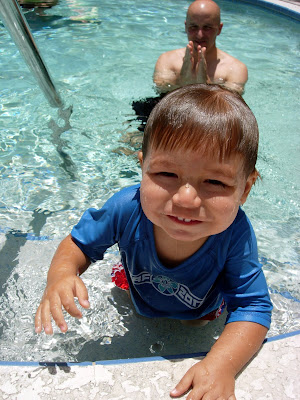
Massachusetts Governor Deval Patrick signed legislation Thursday allowing out-of-state same-sex couples to marry in the Bay State.
The bill, repealing a 1913 law that said marriage licenses could not be issued to couples whose weddings would not be recognized in their home states, cleared its final hurdle earlier this week in the legislature.
Patrick signed the legislation at a noon ceremony at the State House.
The old law was originally passed when interracial marriage was legal in Massachusetts, but not in most other parts of the country.
When the U.S. Supreme Court overturned state bans on interracial marriage, the Massachusetts law fell into disuse.
However, when the Massachusetts high court struck down the state ban on same-sex marriage in 2003, then-Gov. Mitt Romney (R) dusted off the old law, threatening to charge local clerks if they issued marriage licenses to out-of-state same-sex couples.
In a 2006 challenge to the out-of-state ban, the Supreme Judicial Court upheld the law, but noted that since Rhode Island did not have a specific law defining “couple” in its marriage law, gays and lesbians from that state could marry in Massachusetts. Rhode Island is believed to be the only state without a definition of what constitutes a couple.
The court also said that the Massachusetts legislature could repeal the 1913 law. For the past two years, LGBT rights groups and gay-friendly lawmakers worked to gather support for repeal.
Laws usually go into effect 90 days after they are signed, but the repeal bill contained a clause stating that it would go into effect as soon as the governor put his pen to it.
California, the only other state to allow same-sex marriage, has no out-of-state limitation, so gay and lesbian couples from across the country have been going there to wed.
With same-sex marriage opening up in Massachusetts it is expected a large number of couples from Eastern states will opt for Massachusetts.
An analysis by the state Office of Housing and Economic Development found repealing the law would draw thousands of couples to Massachusetts, boosting the economy by $111 million, creating 330 jobs and generating $5 million in taxes and fees over three years.
The study assumes New York would provide the largest number of gay couples - more than 21,000 couples - with New Hampshire, New Jersey, Connecticut, Vermont, and Maine bringing the total to more than 30,000 in the first three years after the ban was lifted.
The bill, repealing a 1913 law that said marriage licenses could not be issued to couples whose weddings would not be recognized in their home states, cleared its final hurdle earlier this week in the legislature.
Patrick signed the legislation at a noon ceremony at the State House.
The old law was originally passed when interracial marriage was legal in Massachusetts, but not in most other parts of the country.
When the U.S. Supreme Court overturned state bans on interracial marriage, the Massachusetts law fell into disuse.
However, when the Massachusetts high court struck down the state ban on same-sex marriage in 2003, then-Gov. Mitt Romney (R) dusted off the old law, threatening to charge local clerks if they issued marriage licenses to out-of-state same-sex couples.
In a 2006 challenge to the out-of-state ban, the Supreme Judicial Court upheld the law, but noted that since Rhode Island did not have a specific law defining “couple” in its marriage law, gays and lesbians from that state could marry in Massachusetts. Rhode Island is believed to be the only state without a definition of what constitutes a couple.
The court also said that the Massachusetts legislature could repeal the 1913 law. For the past two years, LGBT rights groups and gay-friendly lawmakers worked to gather support for repeal.
Laws usually go into effect 90 days after they are signed, but the repeal bill contained a clause stating that it would go into effect as soon as the governor put his pen to it.
California, the only other state to allow same-sex marriage, has no out-of-state limitation, so gay and lesbian couples from across the country have been going there to wed.
With same-sex marriage opening up in Massachusetts it is expected a large number of couples from Eastern states will opt for Massachusetts.
An analysis by the state Office of Housing and Economic Development found repealing the law would draw thousands of couples to Massachusetts, boosting the economy by $111 million, creating 330 jobs and generating $5 million in taxes and fees over three years.
The study assumes New York would provide the largest number of gay couples - more than 21,000 couples - with New Hampshire, New Jersey, Connecticut, Vermont, and Maine bringing the total to more than 30,000 in the first three years after the ban was lifted.
















































